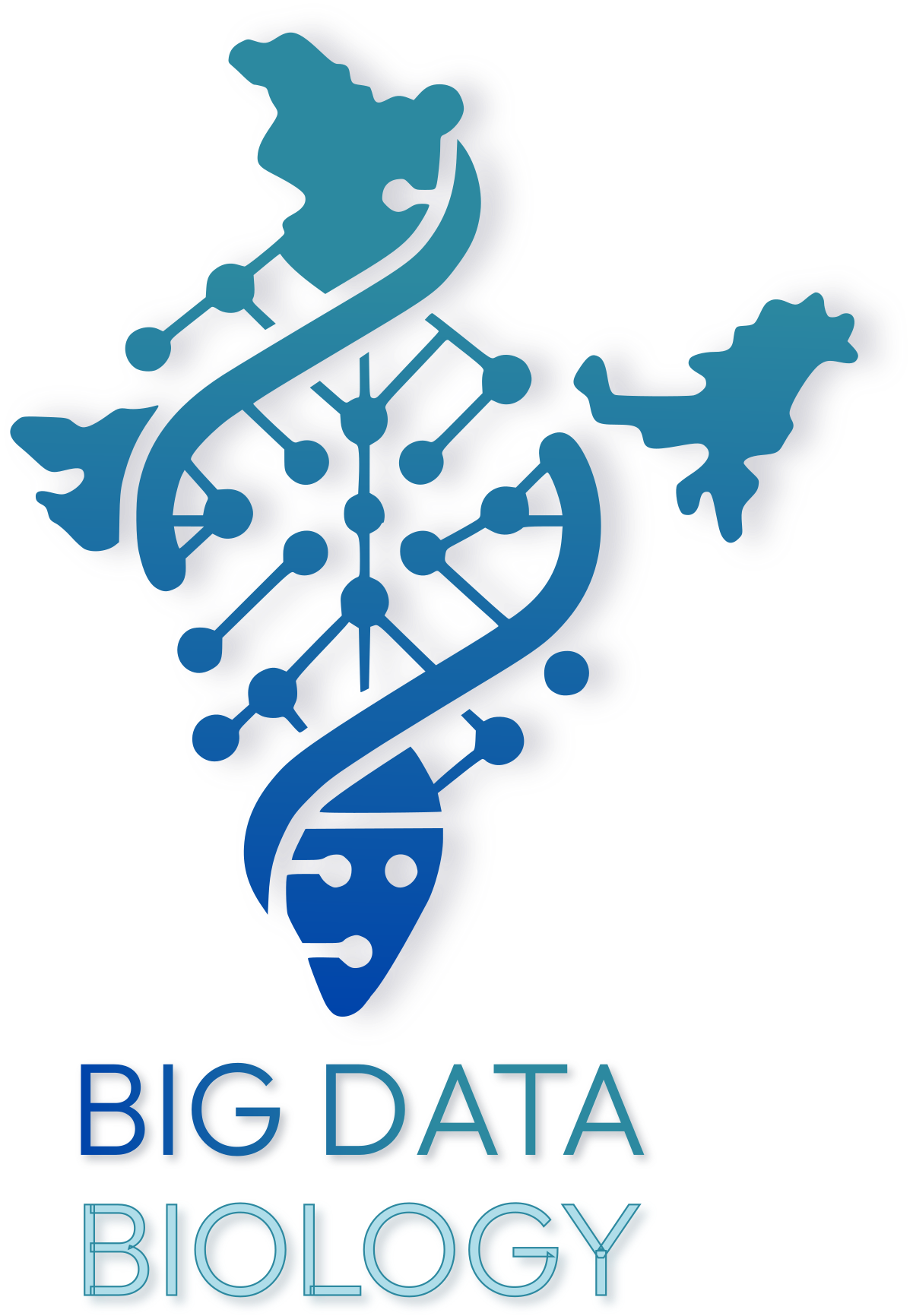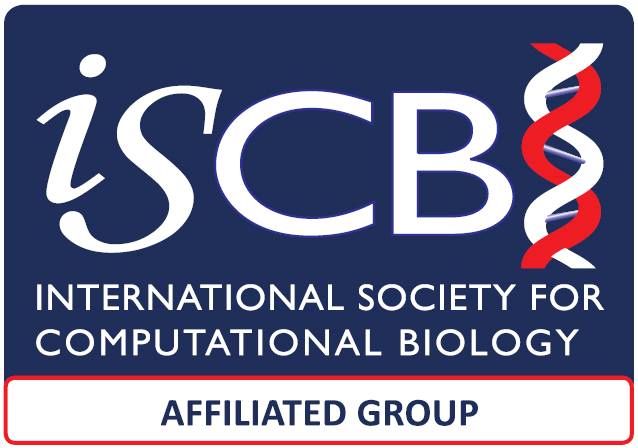ISCB Affiliated Groups
| ASIA and AUSTRALIA |
Contact: Nurul Salwanie (This email address is being protected from spambots. You need JavaScript enabled to view it.)
APBioNET Ltd
Dept of Biochemistry,
MD7 Yong Loo Lin School of Medicine,
National University of Singapore,
8 Medical Dr, Singapore, 1175996.
Geographical area included: Asia Pacific
Leadership Structure: January 2022-December 2024
President: Harpreet Singh, Ph.D
Hans Raj Mahila Maha Vidyalaya Jalandhar, India
Vice President Operations : Mohammad Asif Khan, University of Doha for Science and Technology, Qatar
Vice President Outreach: Kiyoko F. Kinoshita, Ph.D
Soka University, Japan
Treasurer: Sarinder Kaur, University Malaya, Malaysia
Secretary: N. Latha, Bennett University (Times of India Group), India
Executive Committee Members:
Esra Busra Isik, Turkey
Ragothaman Yennamalli, SASTRA University, India
Shuhaila Mat Sharani, Universiti Sains Malaysia (USM), Malaysia
Yun Zheng, Ph.D, Fudan University, China
Goals: APBioNET The Asia-Pacific Bioinformatics Network (APBioNet; https://www.apbionet.org/) is a nonprofit, onn-governmental, international organization founded in 1998 that focuses on the promotion of bioinformatics in the Asia-Pacific region.
APBioNET is dedicated to the advancement of the field of bioinformatics, specifically the development of bioinformatics network infrastructure, the exchange of data and information, the development of training programs, workshops and symposia and the encouragement of collaborations in the field of bioinformatics with an Asia Pacific focus.
Vision: Advance the understanding and application of bioinformatics in research, education and services in the Asia-Pacific region.
Mission: APBioNET's mission, since its inception, has been to pioneer the growth and development of bioinformatics awareness, training, education, infrastructure, resources, and research among member countries and economies.
Objectives:
APBioNET is dedicated to:
• to the advancement of the field of bioinformatics and its development network infrastructure the exchange of data and information
• the encouragement of collaborations in the field of bioinformatics
• the development of training programs, workshops and symposia
Activities:
InCoB International Conference on Bioinformatics (https://incob.apbionet.org/); annually since 2002, 200-300 participants
The 22nd International Conference on Bioinformatics (InCoB 2023 https://incob.apbionet.org/incob23) was held as a physical conference Nov 12-15, 202 and organized by Translational Research Institute (TRI), Queensland University of Technology (QUT) in partnership with APBioNet; 106 participants
InSyB International Symposium on Bioinformatics, annually since 2017, 80-120 participants.
The 8th International Symposium on Bioinformatics (InSyB2024 https://insyb2024.my.canva.site/) was held in University of Delhi South Campus, India on Nov.29, 2024. The theme of this combined event was "From Codes to Cells: Advances in Bioinformatics ”. InSyB2024 was attended by 200 particpants (60 posters & 60 orals)
APBioNET collaborated together with The University of Montana, in collaboration with the National University of Singapore, the National Science and Technology Development Agency of Thailand, the Agency for Science, Technology, and Research of Singapore, and the National Supercomputing Center of Singapore, is the advanced studies workshops in computational biology in Singapore. The Singapore workshop will cover topics in the analysis of sequence data, biomolecule-ligand affinity estimation, molecular dynamics, and other current and advanced topics. Scientists from the USA, Europe, and Asia will be present as instructors, as they were at the first workshop. https://www.umt.edu/comp-bio-asia/
APBioNetTalks (https://apbtalks.apbionet.org/) was lauchned in 2020. It is platform with the simple mission of empowering the community through bioinformatics learning, education, and training. In 2023 one talk was delivered in November 2023.
APBioNET has launched a Student Ambassador Program (SAP https://www.apbionet.org/student-ambassador-program-sap/). SAP's objective is to create an opportunity for graduate students (the Student Ambassador (SA)) from Asia-Pacific geographical regions to hone bioinformatics-based research skills through a student exchange program and to contribute to APBioNET’s activities. Seven Mentors were appointed for 2022 (India 4; Japan 2; Singapore 1)
Activities and programs that demonstrate the advancement of bioinformatics and computational biology:
APBioNET supports every year between 4-6 students to attend InCoB from its Travel Fellowship program http://incob2019.org/travel-grant/. This program was suspended during COVID-19 pandemic.
APBioNET is a Gold member of Global Organisation for Bioinformatics Learning, Education and Training (GOBLET).
For the time being a candidate for hosting InCoB 2023 has been identified in Australia.
InCoB2024 will be part of the Asia-Pacific Bioinformatics Joint Congress 2024 (APBJC 2024, Oct 21-24, 2024) in Okinawa, Japan. APBioNet has initated discussions and planning more than two years ago. This year involved parties came to an agreement on the dates and venue. The congress will be organized by JSBi, APBioNet, ISCB, GOBLET, Bioclues Organization, MaSBiC, and MABBI.
APBioNET proposed to publish an article on Grand Challenges in Bioinformatics Education (https://www.apbionet.org/bgcc/) and is working with members of other Societies including Goblet and ISCB towards this goal. The final version of the manuscript is expected to be submitted in December 2022.
APBioNET is present in the following social media: Facebook: 889 followers (6% increase); Twitter: 616 followers (24% increase); MailChimp 1682 subscribers (25% increase) ; Since 2016 13 newsletter were published on https://www.apbionet.org/newsletter/.
Last Updated January 31, 2025
Contact: Dr Annette McGrath
CSIRO’s Data61
41 Boggo Road
Dutton Park
QLD 4102
Australia
This email address is being protected from spambots. You need JavaScript enabled to view it.
(61 7) 3833 5629
Geographical area included: Australia
Leadership Structure: National Executive Committee
At the 2023 AGM, during the conference, we also voted and welcomed our new 2024 committee:
President: Jimmy Breen
Vice-President: Jessica Mar
Past-President: Tony Papenfuss
Secretary: Anna Trigos
Treasurer: Mirana Ramialison
Student Representative: Carissa Chen
Postdoctoral Representative: Feargal Ryan
Professional Representative: Amit Kumar
Ordinary Members: Giulia Iacono, Shila Ghazanfar, Pengyi Yang, Richard Edwards
Additionally, a number of special resolutions were passed by the ABACBS membership, including:
1. Modification of item 3 of the constitution, which currently reads as: "The financial year of the
Association is each period of 12 months ending on 30 June." to: "The financial year of the Association
is each period of 12 months ending on 30 September."
2. The addition of a “Diversity and Inclusion representative” on the National Executive Committee. This
would be added to Item 44 of the constitution. Election for this role would come into effect at the 2024
AGM.
We were also able to fill the Past President role vacated by Aaron Darling due to time commitments with our
Past-Past President Tony Papenfuss.
Goals: The Australian Bioinformatics And Computational Biology Society (ABACBS, pron.ˈabəkəs) is focused on the science and profession of bioinformatics and computational biology in Australia.
ABACBS aims to
1. strengthen the science and profession
2. encourage and support students
3. provide representation and advocacy
4. promote interaction and awareness
of bioinformatics and computational biology.
The vision of ABACBS is
1. for people to understand why bioinformatics and computational biology are important
2. for excellence in the science and profession of bioinformatics and computational biology
3. for good career opportunities in bioinformatics and computational biology.
ABACBS has emerged from broad consultation with the Australian bioinformatics and computational biology community, initiated by the Australian Bioinformatics Network in 2013. It was felt that there was a high level of support for a professional society representing Australian bioinformaticians and computational biologists. The Society was incorporated in November 2014, and the first executive committee was formed. The first national annual ABACBS conference was held in Sydney in 2015. ABACBS is a young society with an exciting future. We are keen to pursue opportunities for an annual conference as well as support special interest groups.
Activities:
ABACBS ISCB Membership Annual Report
2023-24
ABACBS supports Bioinformaticians and Computational Biologists in Australia through the following activities:
1. Advocacy
a. These include sub-committees for various levels of career stage and situation
2. Society events
a. Annual Research Conference at the end of November each year
b. Seminar Series
c. Subcommittee events
3. Awards
Advocacy & Special Interest Groups
The society has five Special Interest Groups and a number of specific event committees
- COMBINE Student Group:
- Postdoctoral Research Sub-committee
- Diversity and Inclusion Sub-committee (New in 2023)
- Education and Training Sub-committee
- Professional Bioinformaticians Group
- Events based Sub-committees
- BioC Asia
- Sydney Bioinformatics Symposium
- Victorian Cancer Bioinformatics Symposium
Awards and honours
Despite having a virtual conference in Hobart last year, we were able to present a number of our society
awards.
- OUTSTANDING CONTRIBUTION BY AN EARLY CAREER RESEARCHER: Shila Ghazanfar
(University of Sydney)
- MID-CAREER RESEARCH AWARD: Sam Buckberry (Telethon Kids Institute & Australian National
University) & Fatemeh Vafaee (University of New South Wales)
- SENIOR FELLOW: Alicia Oshlack (Peter MacCallum Cancer Centre) and Tony Papenfuss (Walter and
Eliza Hall Institute of Medical Research)
- PROFESSIONAL BIOINFORMATICS AWARD: Kristy Horan (University of Melbourne)
- OUTSTANDING PHD THESIS AWARD: Hani Jieun Kim (University of Sydney)
Since 2022 we have been lucky enough to have support from Australian Research Data Commons
(https://ardc.edu.au) to fund two awards to highlight the amazing work that members do in the development
and maintenance of critical scientific software. Each award will receive $2,500. Due to this we have split the
OPEN SOURCE & OPEN SCIENCE AWARD into two new awards:
- “TORSTEN SEEMANN” OUTSTANDING BIOINFORMATICS SOFTWARE DEVELOPER AWARD:
Named after one of Australia’s most well-known and respected developer of scientific software Torsten
Seemann (Peter Doherty Institute for Infection and Immunity), this award recognises an outstanding
EMCR bioinformatic software developer from the Australian community with a view to promoting further
efforts to develop and share bioinformatics methodologies.
- Awarded to Ryan Wick (Monash University)
- OUTSTANDING BIOINFORMATICS SOFTWARE MAINTAINER AWARD: This award recognises
bioinformaticians from the Australian community who provide outstanding levels of support and
maintenance for widely used bioinformatics software. This award aims to promote efforts amongst our
community members to document, maintain and support high quality bioinformatics software.
- Awarded to Juan Nunez-Iglesias (Monash University)
Society Events
ABACBS National Seminar Series
The ABACBS national seminar series continued in 2023 run by the ABACBS postdoc subcommittee, led by Dr
Feargal Ryan (SAHMRI). We had a limited number of seminars this year due to commitments early in the year.
This year there was a strong emphasis on pairing senior researchers with more junior fellows, enabling some
capacity building and skills development in presenting.
Annual Conference
Our most recent conference was in Brisbane (December 4-8, 2023) and was generously supported by ISCB.
This was our largest conference to date, with 405 people attending in person from 9 different countries with
another 20 attending virtually. As usual we had some amazing keynotes and accepted presentations. Each
year the quality of the research produced by our community gets better and better. Big thanks to Jess Mar and
CX Chan and all of the conference committee members for making the event a success.
Our 2024 conference will be held at the University of Sydney, Sydney, co-convened by Jean Yang and Ellis
Patrick!
ABACBS NHMRC Investigator Grant Strategy Workshop
In September we ran another NHMRC workshop led by ABACBS organisers Matt Field and Jimmy Breen. This
year our panel included Feargal Ryan (SAHMRI), Matt Richie (WEHI), Nadia Davison (WEHI) and Anna Trigos
(Peter Mac). The workshop was attended by almost 100 individuals and feedback was extremely positive. Next
year ABACBS will investigate running a similar workshop, extending the information out to other funding
opportunities and fellowship schemes, including ARC, NIH, Philanthropy and Snow Fellowships.
COMBINE events
In total COMBINE hosted eight events.
1. Computational workshops
a. Introduction to R (2 events)
b. Introduction to Python
2. Social Events
a. Adelaide Bioinformatics Student Event
b. Melbourne Trivia night
3. Industry fireside careers discussion with Bioinformaticians in Industry roles
Activities and programs that demonstrate the advancement of bioinformatics and computational biology:
ABACBS 2023 conference, with COMBINE Symposium, to be held in Brisbane, Dec 2023.
Last Updated March 05, 2024
Contact: Debnath Pal
Department of Computational and Data Sciences
Indian Institute of Science, Bengaluru 560012
Email: This email address is being protected from spambots. You need JavaScript enabled to view it.
Phone: +918022932901
Mobile: +919880856023
Geographical area included: India
Leadership Structure: Convener: Debnath Pal
Co-conveners: Chirag Jain, Sanchit Mishra
Members: Mukund Thattai, Priti Roy, Rahul Siddhartan, Zhumur Ghosh, Partha Majumdar, Ramesh Hariharan, Laxmi Parida
Goals: Rapid advances in high throughput technologies when coupled with scalable algorithms and analytics enable study of biological systems at an unprecedented resolution. Keeping pace with these developments is challenging for young researchers and graduate students. It was felt that a forum for interaction between students, young researchers and practicing scientists would be useful for all. In this light thought an annual conference was designed to bring together research presentations in bioinformatics, computational biology, and systems biology. The students attending the Annual Conference is supported through cost-free local hospitality and waiver of registration fees. The presentations comprise of invited talks from practicing scientists from both academia and industry, and contributed talks from selected Ph.D. students and Postdocs, and (c) an interactive poster session. The topics typically covered include novel computational, statistical, machine and deep learning methods in applications related to Molecular sequence analysis, RNA sequencing analysis, including single-cell Comparative and population genomics, Cancer and infectious diseases, Computational systems biology, biological networks, Metagenomics, Computational proteomics, metabolomics and pharmacogenomics. The forum has successfully organized the annual conference for the past two year benefiting about 300 participants. The strong feedback from the participants has allowed us to increase the conference attendance, and we hope to grow it further in the coming years.
Activities:
The 2nd Annual Conference was held on May 31 and June 1, 2024 at the Faculty Hall, of the Indian Institute of Science (IISc), Bangalore.. It was organized by Dr. Chirag Jain, IISc, Dr. Debnath Pal, IISc, and Dr. Sanchit Misra, Intel Labs. This event featured research presentations in bioinformatics, computational biology, and systems biology. The symposium program, spanning two days, included 12 invited talks and 4 early career speakers from scientists in academia and industry. Overall this event was very well received by the Indian computational biology community. The event was attended by more than 200 participants that included students, speakers, scientists, and working professionals. The opening distinguished lecture by Prof. Partha Majumder was attended by 250 attendees. The conference also served as a platform for 78 selected students from all over India to showcase their ongoing research during the poster and networking session. As a result, the auditorium was fully occupied. Each talk was followed by several engaging questions asked by students and faculty members. Overall the event was very well received. The online feedback we collected using a google form from the attendees to identify the strengths of the event, and understand the scope for further improvement also confirmed the same. We will use several feedbacks received in the response to improve our conference next year.
The presentations were recorded for later viewing and uploaded to the YouTube: https://youtube.com/playlist?list=PLAU4YrLp-kU-zDyh8IKMo8RjTwPl8xgnP&si=hxPa5Pl1Dfma6oDQ
Photographs: https://photos.app.goo.gl/ai1udspQ6WbuRcye8
Program summary: https://drive.google.com/file/d/1AV8pG-B-cFq0KWCkpZ_562CYqlfLwm_p/view
Poster session: https://drive.google.com/file/d/1wyLV0TvR0mvlkzENnCWiokjtOa01gvlf/view
The conference was supported by funds from the Axis Bank Centre for Mathematics and Computing, Kotak-IISc AI-ML Centre. The total funding was 10, 00, 000 INR or about 11, 500 USD. The funds were used to provide local hospitality support to outstation students, travel support to speaker and their local hospitality, and food arrangements during the conference.
Activities and programs that demonstrate the advancement of bioinformatics and computational biology:
3rd Annual Big Data Biology conference (May 30-31, 2025)
Last Updated January 21, 2025
Contact: Nagarajan Raju (This email address is being protected from spambots. You need JavaScript enabled to view it.) Outreach Chair and Prashanth Suravajhala, PhD, Founder
Mailing Address: Bioclues.org, Kukatpally, Hyderabad 500072
US Phone: +1-541-666-9547
Geographical area included: India
Leadership Structure: Bioclues Executive Team (BET):
Founders: Prashanth Suravajhala, PhD. and Pritish Varadwaj, PhD.
Advisors: GPS Raghava, PhD., Dr. Jayaraman Valadi, N Srinivasan, PhD., HA Nagarajaram, PhD., Krishna Mohan Medicheria, PhD., R Keshavachandran, PhD., Pratap VV Reddy, PhD and more.
President: GPS Raghava, PhD.
Vice President: Dr. Jayaraman Valadi
Outreach Chair: Nagarajan Raju, PhD
Chief Scientific Officer: N Srinivasan, PhD.
Entrepreneurship Chair: Mohankumar Megha
Mentoring Chair: Vishal Acharya, PhD
Research Chair: Sriparna Saha, PhD.
Women in Biology Chair: Manika Sehgal, PhD
Women in Biology Co-chair: Sujata Dhar and Dhatri Madduru
Treasurer: Saumyadip Sarkar
History: Was first founded by Prash Suravajhala and Pritish Varadwaj in 2005, virtual deployment began in mid 2006. BIOCLUES is acronymed for Bioinformatics Club for Experimenting Scientists. The organization was founded in 2005. It is a non-profit virtual organization for, by, and of the Indian Bioinformaticians. It is one of the fastest growing bioinformatics societies in India, currently serving over 3400 members from nearly 30 countries. We aim to bring together the Indian bioinformaticians, foster a strong working mentor–mentee relationship, provide access to bioinformatics resources, organize conferences and workshops besides imparting information about research, training, education, employment and current events and news from bioinformatics, genomics, and related fields. Bioclues adheres to Creative Commons License with the prime focus to help the Bioinformaticians in India to promote open access. In the year 2010, we have setup vision 2020 to ensure our thoughts are converted to actions by the said year.
Goal:
The purpose of this Organization is to promote the interaction among students, scientific professionals and industrialists through budding fields like Systems biology and Computational Biology
Vision:
• To create and disseminate consciousness of research in the field of Bioinformatics and systems biology through webinars
• Identify practicable knowledge drivers through a comprehensive look for computational biologists
• Impart a complete understanding of the principal bioinformatics algorithms and tools through interactive summaries, polls, discussions
• To provide an online project platform for mentoring graduate students, while bridging the interaction of students in the field of computational biology
• To cater the need of assimilating existing open source code and developing novel tools and webservers for research community
• To encourage women scientists take up bioinformatics
• To bridge the gap between academic and industry in terms of Bioinformatics and Bio IT
• (Immediate) Making 2020 Bioinformatics by the year 2020
• Reaching the unreached young scientists and researchers, encouraging them to lessen the scale of experimentation
• Making active Academicians and Entrepreneurs
Objectives:
The organization works on four avenues, viz. Mentoring, Outreach, Research and Entrepreneurship (MORE). We organize conferences, tutorials, trade and industrial shows, educative seminars, colloquiums, workshops so that the student-researchers are ignited in the upcoming facets of computational biology More at www.bioclues.org
Research focus area:
• Annotate and curate next generation sequencing (NGS) Datasets
• Genome Diversity and Coverage Distribution
• Pathway Analysis and Protein Interactions
• Functional Mapping with Gene Ontology
• Pipeline Development/Cloud interfaces
Last Updated September 20, 2024
Contact: Xuegong Zhang
This email address is being protected from spambots. You need JavaScript enabled to view it.
Geographical area included: China
Leadership Structure: Board of Directors: Hongmin Cai, Ge Gao, Qinghua Jiang, Min Li, Tingting Li, Xiaowo Wang, Xiujie Wang, Xun Xu, Li Yang, Kai Ye, Qiangfeng Zhang, Shihua Zhang, Xuegong Zhang, Yong Zhang, Fangqing Zhao, Xingming Zhao
Chair: Xuegong Zhang
Vice Chairs: Xiujie Wang, Ge Gao, Fangqing Zhao
Acting Director of Office: Xiaowo Wang
Goals: On behalf of the bioinformatics community in China, Xuegong Zhang of Tsinghua University started to discuss with ISCB's leaders in 2023 about the establishment of branches or sub-societies of ISCB in China to expand its influence in China and to make closer connections between computational biologists in China and in the other parts of the world. After months' of discussion and exploration for feasible routes, ISCB and Tsinghua University signed an agreement in May of 2024. The two parties agreed to establish ISCB China Secretariat at Tsinghua University, Department of Automation. In July 2024, Tsinghua University invited a Preparatory Committee led by Xuegong Zhang to design the way of running ISCB China Secretary. The committee decided to build a Council as the organization to run ISCB China Secretariat, named ISCB-China Council or ISCB-China for short. The Board of Directors of ISCB-China was formally found on Sept.7, 2024. And a the Bylaws of ISCB-China was also passed by the Board of Directors on the same day. The opening ceremony of ISCB-China is held on Oct. 26, 2024.
Activities:
A summary of activities conducted to support the advancement of bioinformatics and computational biology.
1.On May 6, 2024, Tsinghua University formally signed a long-term cooperation agreement with the ISCB to establish the ISCB-China
2.The ISCB-China Preparatory Committee was established on July 6, 2024 to work and collaborations effectively. The Preparatory Committe reviewed and approved "Bylaw of the ISCB China Council" on August 28, 2024, and proposed the first Board of Directores of ISCB-China and elected its leaders on Sept. 7, 2024.
3.On October 26, 2024, the inauguration ceremony of the International Society for Computational Biology China Council (ISCB-China), was held in Beijing, with 116 attendees including distinguished professors and scholars from universities and research institutes across the country, representatives from the industry, and renowned professors from top universities in the United States . They witnessed this historic moment together and discussed the development of the discipline, the frontiers of science, and the bright future of promoting international exchanges and collaborations, as well as the integration of academic and industrial development through ISCB-China.
4.ISCB-China Website is launched, and the member information can be exported and imported into ISCB database for data synchronization.
5. "ISCB-China's 2025 Priority Strategic Plan" was discussed and. revised, and the final version was approved by ISCB-China Council on December 17, 2024. The plan is including a series of activities that focusing on connecting the bioinformatics community with the global community, and to connect the academic community with the industry that generate data, provide facilities and apply computational biology for medical, agriculture and other fields.
Updated information for your group’s posting on the ISCB website, including current initiatives, educational activities, conferences, funding or fellowship opportunities, and other relevant updates.
1.The press release is published on ISCB website. computational biology and bioinformatics are increasingly receiving much more attention from the scientific community and industry worldwide. With the establishment of ISCB-China, China is poised to make significant contributions to the global community of computational biology, shaping the future of this exciting and important field.
2.With the launch of ISCB-China website. All global conference information was published on ISCB-China for maximum outreach and attraction.
Contributions to ISCB, such as encouraging members to join ISCB, promoting ISCB activities, providing feedback on current initiatives, and suggesting new programs that align with our shared mission.
1.After the inauguration ceremony of ISCB-China, we attracted 20+ new registrations, and 7 institutions membership in pipeline.
2.Heads up ISMB 2025 to China industry (Enterprise exhibition area) and in discussion with ISCB for details.
3.Suggestion of ISCB-China Workshop/Session during ISMB2025.
Activities and programs that demonstrate the advancement of bioinformatics and computational biology:
ISCB-China will plan a series of activities that focusing on connecting the bioinformatics community with the global community, and also to connect the academic community with the industry that generate data, provide facilities and apply computational biology for medical, agriculture and other fields. ISCB-China is interested in hosting upcoming ISMB meetings and RECOMB meetings, and is also seeking to start regional meetings such as ISMB-Asia, collaborating with other societies in the region.
Last Updated January 22, 2025
Contact: Yoshihiro Yamanishi
Nagoya University
Department of Complex Systems Science, Graduate School of Informatics
Chikusa
Nagoya 464-8601
Japan
Phone: +81527895638
This email address is being protected from spambots. You need JavaScript enabled to view it.
Alternative Email:
This email address is being protected from spambots. You need JavaScript enabled to view it.
Geographical area included: Japan
Leadership Structure: President:
Yoshihiro Yamanishi
(Term April 2023- March 2025)
Vice President:
Michiaki Hamada
(Term April 2023- March 2025)
Board of Directors:
Kiyoshi Asai (Graduate School of Frontier Sciences, The University of Tokyo)
Masanori Arita (National Institute of Genetics)
Wataru Iwasaki (Graduate School of Frontier Sciences, the University of Tokyo)
Masahito Ohue (School of Computing, Tokyo Institute of Technology)
Risa K Kawaguchi (Center for iPS Cell Research and Application, Kyoto University)
Masaaki Kotera (Preferred Networks Inc.)
Kana Shimizu (Faculty of Science and Engineering, Waseda University)
Hideo Matsuda (Graduate School of Information Science and Technology, Osaka University)
Hirotaka Matsumoto (School of Information and Data Sciences, Nagasaki University)
Sayaka Mizutani(School of Life Science and Technology, Tokyo Institute of Technology)
Yoshihiro Yamanishi (Graduate School of Informatics, Nagoya University)
(Term 2023/04/01 - 2025/03/31)
Takeshi Obayashi (Graduate School of Information Sciences, Tohoku University)
Soichi Ogishima (The Advanced Research Center for Innovations in Next-Generation Medicine, Tohoku University)
Junna Kawasaki (Graduate School of Medicine, Chiba University)
Yutaka Saito (Graduate School of Frontier Engineering, Kitasato University)
Yasubumi Sakakibara (Department of Biosciences and Informatics, Keio University)
Tsuyoshi Shirai (Nagahama Institute of Bio-Science and Technology)
Yayoi Natsume (National Institute of Biomedical Innovation, Health and Nutrition)
Michiaki Hamada (Faculty of Science and Engineering, , Waseda University)
Tsukasa Fukunaga (Waseda Institute for Advanced Study, Waseda University)
Motomu Matsui (Institute for Chemical Research, Kyoto University)
(Term 2024/04/01 - 2026/03/31)
Goals: The Japanese Society for Bioinformatics (JSBi) was founded in 1999 for promoting researches and educational activities on bioinformatics as well as for promoting the relevant technologies and industries in Japan. JSBi also enhances international collaborations as an affiliated regional group of ISCB (International Society for Computational Biology) and a member of AASBi (Association of Asian Societies for Bioinformatics). In addition, JSBi played a key role in holding the longest running international bioinformatics conference, International Conference on Genome Informatics (GIW, former Genome Informatics Workshop), which originated in Japan.
Activities:
• JSBi annual meeting
• JSBi newsletter (2 issues per year)
• JSBi Bioinformatics Review
• Encyclopedia of bioinformatics (published in 2006)
• Bioinformatics introduction textbook
• Bioinformatics engineer examination
• Bioinformatics education curriculum
• Special interest groups and regional meetings
• As a founding member of the Association of Asian Societies for Bioinformatics (AASBi), JSBi supports GIW and other international bioinformatics meetings in the years they are held in Japan.
Activities and programs that demonstrate the advancement of bioinformatics and computational biology:
The most important event of JSBi is the General Meeting, which is held once a year and to which all the members are requested to participate. Until 2006, the General Meeting had been held as a part of an international meeting, GIW (International Conference on Genome Informatics, former Genome Informatics Workshop). Since GIW becomes an official meeting of AASBi from 2007, the General Meetings are held independently in Japan.
Holding Special Interest Groups (SIGs) and Regional Working Groups, presenting Oxford Journals-JSBi Prize, and publishing News Letters and Bioinformatics Reviews are also main activities of JSBi. Other activities include managing Bioinformatics Engineer Examination, developing a standard curriculum for bioinformatics education in universities and graduate schools, and editing the encyclopedia of bioinformatics and bioinformatics introduction textbook (in Japanese). The encyclopedia, written by hundreds of JSBi members and researchers in related areas, was published by Kyoritsu Shuppan. Co. Ltd.
Last Updated January 31, 2025
Contact: President : Doheon LEE, Ph.D., Professor
Korea Advanced Institute of Science and Technology (KAIST)
E-mail: This email address is being protected from spambots. You need JavaScript enabled to view it.
General Secretary : Tae-Min Kim, Ph,D., Professor
Catholic University of Korea
E-mail: This email address is being protected from spambots. You need JavaScript enabled to view it.
KSBi Office : This email address is being protected from spambots. You need JavaScript enabled to view it.
Tel +82-2-2135-2578
Geographical area included: Korea
Leadership Structure: President
Vice President
Auditor
Advisor
Special Advisory
Steering committee : General affairs, Planning affairs, Program affairs, Publication affairs, Industrial Collaboration affairs, Publicity affairs
Goal/mission:
• Promotion of bioinformatics research and development in Korea
• Sponsoring bioinformatics-related academic events such as symposia, workshops, discussion forums, etc in Korea
• Participation in basic and advanced bioinformatics education in Korea
• Supporting technological and industrial development in the area of bioinformatics in Korea
Brief history:
In Oct., 1998, a group of experts in the areas of life science and bioinformatics recognizing the importance of bioinformatics in the coming decades founded KSBi. Since then, experts from non-biology areas such as computer science, mathematics and so on joined it.
Activities:
• The 6th BIML(Bioinformatics and Machine Learning) :
Training workshop for researchers, academics, and industrial practitioners.
Jan. 30th~Feb. 1st, 2020.
number of participant : 350
Activities and programs that demonstrate the advancement of bioinformatics and computational biology:
• APBC-BIOINFO 2020
The joint conference, APBC(Asia Pacific Bioinformatics Conference)-BIOINFO 2020 is going to be held in Aug. 18th~20th.
• The 7th BIML workshop
The BIML workshop is planning on all the core and new topics in bioinformatics and computational genomics.
Last Updated December 13, 2024












